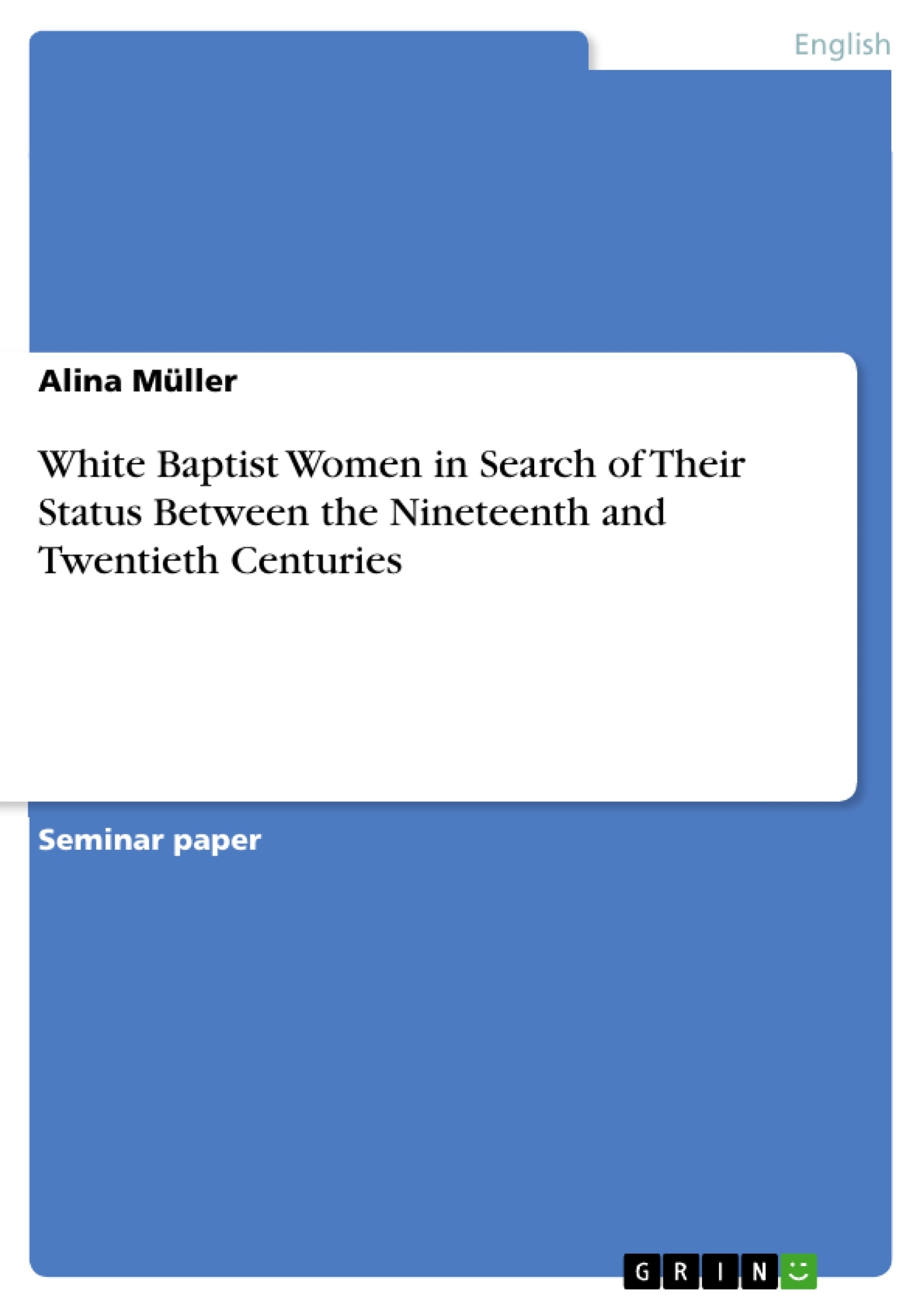The history of female leadership in the American South is worthy of considerable attention due to its notorious repression of women’s empowerment. Of particular significance is the Southern Baptist denomination, one of the largest Protestant confessions in the United States, and also one of the least open to women’s leadership. The impact of Southern Baptist women on economic, political, and especially religious life has been historically overlooked or even ignored because of their minor entrance into leadership positions. Throughout the nineteenth and twentieth centuries these women gained a vast variety of experience related to their underrepresentation in public life.
Inhaltsverzeichnis (Table of Contents)
- Introduction
- The "Woman's Question" and the Southern Baptist Convention
- Southern Baptist Women in Ministry: Pastorate
- The Women's Missionary Union and the Bible
- Conclusion
Zielsetzung und Themenschwerpunkte (Objectives and Key Themes)
This paper investigates the role and development of Southern Baptist women's leadership in the religious sphere during the 19th and 20th centuries, focusing on their impact on the Southern Baptist Convention and their influence on the denomination. The paper explores the challenges these women faced, including gender discrimination, exclusion from religious congregations, and limitations in their ability to participate in leadership positions.
- The “Woman’s Question” and the Southern Baptist Convention
- Southern Baptist Women's Struggle for Leadership and Equality
- Women's Role in Missions and the Impact of the Women's Missionary Union
- The Influence of Patriarchal Norms and Cultural Context on Gender Roles
- Women's Interpretation of the Bible and Its Impact on their Self-Identity
Zusammenfassung der Kapitel (Chapter Summaries)
The paper begins with an introduction that examines the historical context of female leadership in the American South, highlighting the Southern Baptist denomination's limited acceptance of women's leadership. It then dives into the "Woman's Question" and the Southern Baptist Convention, focusing on the controversy over women's participation in leadership roles, including their role as delegates and messengers. The paper analyzes the historical context of these debates and explores the impact of patriarchal norms and cultural attitudes on the restriction of women's rights.
The paper further explores the topic of Southern Baptist women in ministry, focusing on their roles as pastors and their contributions to the religious sphere. It examines the challenges they faced in achieving leadership positions and the societal and religious forces that hindered their progress. The paper also delves into the significant role of the Women's Missionary Union and the impact of the Bible on women's self-identity and interpretations of their role in society.
Schlüsselwörter (Keywords)
The key topics and concepts explored in this paper include: Southern Baptist women, leadership, gender roles, patriarchy, religious authority, Southern Baptist Convention, Women's Missionary Union, feminism, biblical interpretation, and the “Woman’s Question.”
Frequently Asked Questions
What was the "Woman's Question" in the Southern Baptist Convention?
It refers to the long-standing debate and controversy regarding women's participation in leadership roles and their status as delegates within the denomination.
How did Southern Baptist women contribute to the church despite restrictions?
They were highly active in missions, primarily through the Women's Missionary Union (WMU), which gave them a platform for organizational leadership.
What challenges did women face in seeking the pastorate?
They faced deep-seated gender discrimination, exclusion based on patriarchal biblical interpretations, and cultural norms of the American South.
How did the Bible influence Southern Baptist women's identity?
The text explores how women both interpreted the Bible to find empowerment and were limited by traditional interpretations used to uphold male authority.
Why has female leadership in this denomination been historically overlooked?
Due to their exclusion from formal leadership positions and the notorious repression of women's empowerment in the religious sphere of the South.
- Quote paper
- Alina Müller (Author), 2013, White Baptist Women in Search of Their Status Between the Nineteenth and Twentieth Centuries, Munich, GRIN Verlag, https://www.grin.com/document/213201



